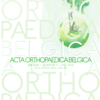Knee mega-prosthesis in the management of complex knee fracture of the elderly : a case series and review of the literature
distal femur fracture ; knee mega-prosthesis ; elderly ; osteoporosis
Published online: Sep 14 2021
Abstract
The management of complicated distal femur fractures (DFF) of the elderly continues to pose a challenge. Knee mega-prosthesis are mostly used for Total knee arthroplasty revision and tumor resection surgery but they can be used for the treatment of complex knee fractures. The purpose of the present study is to examine the short- to mid- term outcomes of their use for complex DFF of the elderly. We retrospectively identified 4 patients with DFF AO33C3 on osteoporotic bone treated by total knee arthroplasty from September 2015 to October 2019. The average age at the time of the surgery was 79,5 years (range, 69 to 95 years). All patients were females and underwent a total knee replacement by one senior surgeon, with the OSS TM Orthopaedic Salvage System (Zimmer Biomet, Warsaw, Indiana, USA). Outcome measures included clinical outcome scores, radiological analyses, reoperation rate and complications.
At an average follow-up of 2,3 years (range, 0,6 to 4,2 years), the average Western Ontario and McMaster Universities Osteoarthritis index (WOMAC) was 17,25 (range, 7 to 37), the average Oxford knee score was 35,25 (range, 25 to 41) and the average pain Numerical Rating Scale (NRS) was 0,5 (range, 0 to 1). 3 Patients had postoperative anemia but no implant related complications has been reported.
Complex DFF of the elderly treated with mega knee arthroplasty exhibit good clinical outcomes scores. The patients should be selected carefully as the complication rate found in the literature remains high.
